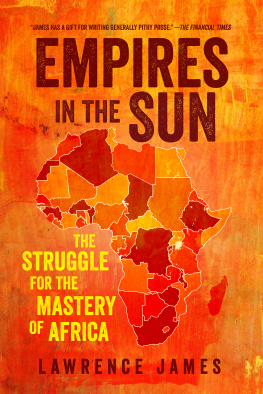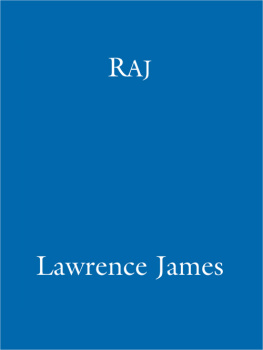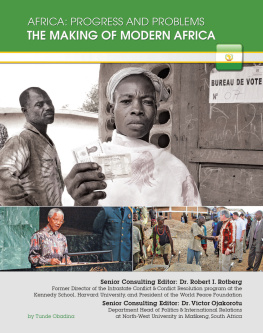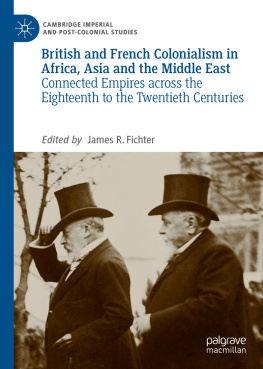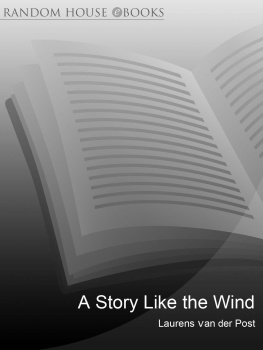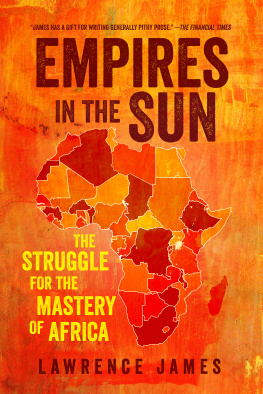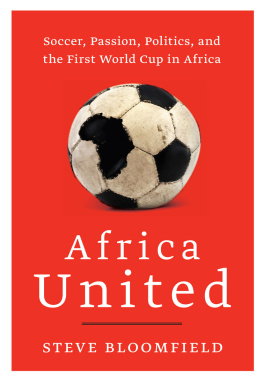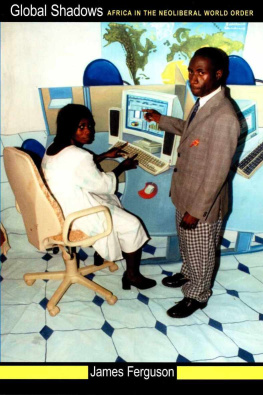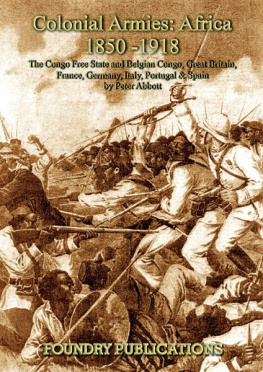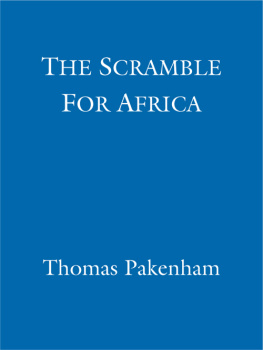
EMPIRES
IN THE SUN
THE STRUGGLE FOR THE MASTERY OF AFRICA
LAWRENCE JAMES

This book is about the transformation of Africa during the nineteenth and twentieth centuries, when almost the entire continent became a part of Europes global empires. It is a story of power struggles between nations and between rulers and the ruled. Change generated conflict, since it was imposed from above by foreigners who called it progress and believed that it would benefit them and their African subjects. Some agreed, cooperated with the invaders and flourished, while others resisted. Wars of conquest and pacification dragged on for over a hundred years and only ended with the Italian subjugation of Abyssinia in 1936. War had always been endemic in Africa, but the Europeans brought with them all the latest advances in military technology. Throughout the early period of conquest machine-guns gave their forces an immense advantage and during the 1920s and 1930s the Spanish, French and Italians deployed bombers, tanks and mustard gas against Moroccans, Libyans and Abyssinians. Nonetheless, incompetent European generals occasionally evened out the odds.
Foreigners also fought each other for control of the land in Africa. The continent was drawn into both world wars, in which Germany and then Italy lost their colonies. Over a million Africans volunteered or were conscripted to fight and many found themselves campaigning on distant fronts. During the Second World War, black soldiers from Britains colonies fought the Japanese in Burma, and Algerians and Moroccans served alongside French forces against Germans in Italy and Western Europe. Veterans returned home proud, puzzled and angry. They had been told that they were risking their lives for universal freedom and a better world, but for the time being the imperial order remained entrenched in Africa.
The post-1945 dismantlement of the empires coincided with a new contest, the Cold War, and Africa was again drawn into a struggle between outsiders. Its protagonists, the United States and the Soviet Union and their allies, funded and armed nationalist movements and new, independent states and the Kalashnikov became the dispenser of power. The upshot was over forty years of intermittent wars in every corner of the continent, which was swamped with modern Russian and American weaponry. Percipient Africans recognised a new scramble for their continent, undertaken as part of a global struggle between democratic capitalism and Communism. Ideological labels masked what turned out to be cynical and ruthless bids for political and economic power. When handling Africas new rulers, each side adopted the principle that he may be a son of a bitch, but hes our son of a bitch. Fragile democracies perished, dictators flourished and wars proliferated. Millions died, many from famines.
Conflict is one theme of this book; the other is reciprocity. In its broadest sense this concept was a constant feature of attitudes towards Africa and its people. Strange as it may seem, Charles de Gaulle, Mussolini, Cecil Rhodes and Nikita Khrushchev believed that their countries had something of value to offer Africans. The nature of this gift had first become apparent during the period of conquest, partition and annexation, roughly between 1830 and 1914. Then, British, French, German and Italian imperialists had convinced themselves and their countrymen that they were sharing the moral, cultural, scientific and technical benefits of Europes intellectual and industrial revolutions. The French coined the expression mission civilisatrice to describe this mass export of the eighteenth- and nineteenth-century Enlightenment. Catholic and Protestant churchmen concurred: conversion of the heathen was integral to Africas entry into the civilised world. While engineers built railways, missionaries preached the Gospel.
This dual partnership of physical and spiritual regeneration was appropriate for Africa, which in the popular imagination was depicted as a dark continent. It was as yet largely unexplored and inhabited by peoples whose lives seemed to be so darkened by ignorance and superstition that they had failed to master their environment. This was a gross simplification, but it became rooted in the European consciousness and its consequences would have a baleful effect on how Africans were imagined and treated. If history represented an onwards and upwards march of mankind and this was widely accepted during the age of empires then why had some people fallen behind? Was this the upshot of complex external circumstances, or was it genetic? The latter explanation suggested that there was a biological and unchangeable hierarchy of races: modern racism had its roots in Europes imperial experience. Multiple proofs of the capacity and ingenuity of the African mind did not lay the ghost of inherited inferiority. Neither did the vehement claims of the missionaries that all souls were equal before God.
Delivering the fruits of the European Enlightenment to Africans was more than a one-way exercise in ambitious philanthropy: Africans had something to give in return. It was widely imagined that they were sitting on vast, undiscovered lodes of minerals and were surrounded by forests and swathes of fertile land ripe for rubber, fruit and coffee plantations. Africas hitherto underused resources would be exploited and the continent integrated into the global network of industry and trade. Its entry would be assisted by white settlers who would bring with them efficient and scientific methods of farming to grow food for European markets. Native labour was abundant and cheap and the African would spend his wages on the products of European industries, or so the theory went.
Like the subjugation of his homeland, transforming the African into a biddable worker and consumer was an interminable struggle, not least because imported economic systems disrupted or eliminated old ones. Advocates of reciprocity tended to forget that African society and customs, like those of Europe, had evolved to satisfy local needs and conditions. Nevertheless, there was abundant evidence that the African was keen to wear imported cotton from Lancashire and ride bicycles made in Birmingham.
Above all, the new Africa needed stability and order. These required new laws, new administrative systems, armies, police forces, taxation and the active participation of Africans. Greater and lesser native rulers usually retained their authority under supervision, and a new class of largely mission-educated Africans emerged to undertake the humbler chores of administration. Accommodations were made with local customs. Despite the protests of the missionary lobby, the Kenyan government refused to outlaw female circumcision. In Morocco, French officials tolerated the sale of potentially lethal local medical remedies, although they hoped that they would disappear once Moroccans discovered the effectiveness of European drugs. Of greater significance were the accommodations agreed between the British and the French and local Muslim princes and clergy. The former promised to respect Islam and the latter agreed to cooperate with their new rulers; some theologians argued that European victories over Muslim armies reflected the will of Allah to which the faithful had to submit.
There were no compromises over slavery. With varying degrees of determination, the imperial powers pledged themselves to rid Africa of slavery and slave-trading which, by the middle of the nineteenth century, was mostly undertaken by Arabs. They and their African auxiliaries were well armed and organised and operated on a large scale across much of East Africa and the regions bordering on the Sahara. Estimates of their victims run into millions. By the first decade of the twentieth century, Britain, France and Germany had all but suppressed this trade, which has attracted far less historical attention than its Atlantic counterpart. I have attempted to redress this imbalance.
Next page
